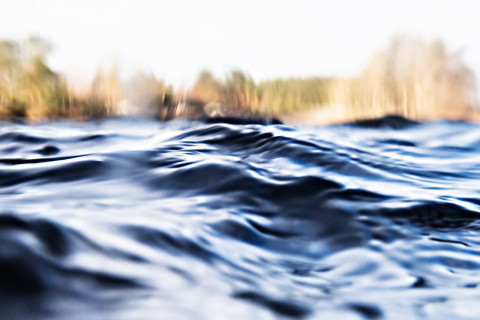Researchers from the Finnish Environment Institute SYKE, the University of Eastern Finland and Aalto University took part in drafting the handbook together with the Economic Commission for Europe (UNECE) and international experts.
A new handbook will promote sustainable and equitable allocation of transboundary water resources. The publication is the first of its kind and is the latest example of Finland’s significant role in international water cooperation.
The ”Handbook on Water Allocation in Transboundary Context” (pdf) of the global Convention on Transboundary Watercourses (the Water Convention) will be published on 30 September at the Meeting of the Parties in Geneva. Researchers from the Finnish Environment Institute SYKE, the University of Eastern Finland and Aalto University took part in its drafting together with the Economic Commission for Europe (UNECE) and international experts.
The new handbook contributes to the implementation of Finland’s international water strategy (Finnish Water Way) (pdf). One of the goals of the strategy is to support equitable and sustainable use of water. The strategy is based on extensive cooperation between the Finnish ministries (Ministry for Foreign Affairs, Ministry of Agriculture and Forestry, Ministry of the Environment, Ministry of Social Affairs and Health, Ministry of Economic Affairs and Employment) and research institutes, including SYKE.
“The handbook is now more topical than ever, as there is an increasing pressure on the use of water resources and as climate change is changing the water conditions. The handbook will act as a global guideline for transboundary water allocation alongside the Water Convention, and on a broader scale, in international water law and policy”, says Research Professor Antti Belinskij from SYKE and University of Eastern Finland.
“The central question the handbook addresses is who can use shared water resources, in what quantity and of what quality, for what purposes, where and when?” Senior Research Scientist Suvi Sojamo from SYKE sums up.
Principles and examples for sustainable and equitable sharing of water resources
The handbook compiles the principles, procedures and mechanisms of sustainable and equitable water allocation, its legal foundation and elements of a shared knowledge-base. The handbook also presents practical examples of critical water allocation cases and best practices around the world, including the Finnish–Russian transboundary watercourse cooperation. The handbook thus also lays a foundation for promoting water diplomacy internationally.
Changing pre-existing usage patterns to fit to the evolving conditions and demands requires their joint review between states. Reconciling environmental needs and water uses of people, societies and business is a continuous balancing exercise where the handbook will play a central role.
Water cooperation is needed now more than ever before
Water has become a critical issue on the global scale for multiple reasons. Water demand is growing while the supply of clean water is getting scarcer and its quality is often poor. The state of the water ecosystems, important to nature and people alike, is declining. Climate change is making the situation even more difficult in areas suffering from drought and floods.
Over 60 per cent of the world’s watercourses cross state borders. The above-mentioned challenges are especially critical for these watercourses that are situated in more than one state. Water issues have played a part in many international conflicts. In turn, investing in watercourse cooperation has supported broader cooperation and peace between states.
Finland has a strong role in developing international cooperation frameworks
Finland has played a key role in developing global water conventions. Finland has participated in the implementation of the Water Convention in particular through the support of the Ministry of the Environment, Ministry of the Agriculture and Forestry and Ministry for Foreign Affairs.
SYKE’s former Director General Lea Kauppi was the first Chair of the Water Convention. Finnish experts have since the founding of the Convention been active in its multiple working groups. The Water Allocation Handbook published today is a great example of how SYKE and its partners promote reaching the goals of sustainable development through research and knowledge production.
Further information
Professor Antti Belinskij, Finnish Environment Institute SYKE, University of Eastern Finland, tel. +358 295 251 088, [email protected]
Senior Research Scientist, Suvi Sojamo, Finnish Environment Institute SYKE, tel. +358 295 251 049
Source: Finnish Environment Institute SYKE, https://www.syke.fi/en-US/Current/Finland_having_a_significant_role_in_int(61623)
